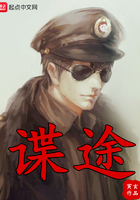In the autumn the Rostov family returned to Moscow. At the beginning of the winter Denisov too came back and stayed again with the Rostovs. The early part of the winter of 1806 spent by Nikolay Rostov in Moscow, was one of the happiest and liveliest periods for him and all the family. Nikolay brought a lot of young men about him into his parents’ house. Vera was a handsome girl of twenty; Sonya, a girl of sixteen, with all the charm of an opening flower; Natasha, half grown up, half a child, at one time childishly absurd, and at another fascinating with the charm of a young girl.
The Rostovs’ house was at that time full of a sort of peculiar atmosphere of love-******, as commonly happens in a household where there are very young and very charming girls. Among those young girls’ faces, impressionable and always smiling (probably at their own happiness), in that whirl of eager bustle, amid that young feminine chatter, so inconsequent, but so friendly to every one, so ready for anything, so full of hope, and the inconsequent sound of singing and of music, any young man who came into the house felt the same sensation of readiness to fall in love and longing for happiness, that the younger members of the Rostov household were feeling themselves.
Among the young men Rostov brought to the house, one of the foremost was Dolohov, who was liked by every one in the house except Natasha. She almost had a quarrel with her brother over Dolohov. She persisted that he was a spiteful man; that in the duel with Bezuhov, Pierre had been in the right and Dolohov in the wrong, and that he was horrid and not natural.
“I know nothing about it, indeed,” Natasha would cry with self-willed obstinacy; “he’s spiteful and heartless. Your Denisov now, you see, I like; he’s a rake, and all that, but still I like him, so I do understand. I don’t know how to tell you; with him everything is done on a plan, and I don’t like that. Denisov, now…”
“Oh, Denisov’s another matter,” answered Nikolay, in a tone that implied that in comparison with Dolohov even Denisov was not of much account. “One must understand what soul there is in that Dolohov; one must see him with his mother; such a noble heart!”
“I know nothing about that, but I don’t feel at home with him. And do you know he’s falling in love with Sonya?”
“What nonsense!”
“I am sure, you will see he is.”
Natasha’s prediction was fulfilled. Dolohov, who did not as a rule care for ladies, began to come often to the house; and the question, for whose sake he came, was soon (though no one spoke of it) decided—it was on Sonya’s account. And though Sonya would never have ventured to say so, she knew it, and blushed scarlet every time Dolohov made his appearance.
Dolohov often dined at the Rostovs’, never missed a performance at which they were to be present, and attended Iogel’s balls “for the boys and girls,” at which the Rostovs were always to be found. He showed marked attention to Sonya, and looked at her with such an expression in his eyes that Sonya could not bear his eyes on her without turning crimson, and even the old countess and Natasha blushed when they saw that look.
It was evident that this strong, strange man could not shake off the impression made on him by the dark, graceful young girl, who was in love with another man.
Rostov noticed something new between Dolohov and Sonya, but he did not define to himself precisely what that new attitude was. “They are all in love with some one,” he thought of Sonya and Natasha. But he did not feel quite at his ease as before with Sonya and Dolohov, and he began to be less often at home.
In the autumn of 1806 every one was beginning to talk again of war with Napoleon, and with even greater fervour than in the previous year. A levy was decreed, not only of ten recruits for active service, but of nine militiamen for the reserve as well, from every thousand of the population. Everywhere Bonaparte was anathematised, and the only thing talked of in Moscow was the impending war. To the Rostov family the interest of these preparations for war was entirely centered in the fact that Nikolushka refused to remain longer in Moscow, and was only waiting for the end of Denisov’s leave to rejoin his regiment with him after the holidays. His approaching departure, far from hindering him from enjoying himself, gave an added zest to his pleasures. The greater part of his time he spent away from home, at dinners, parties, and balls.















